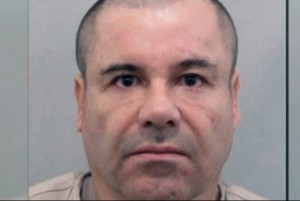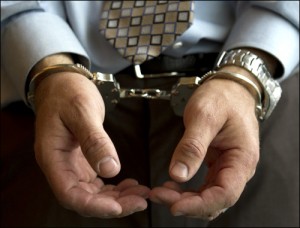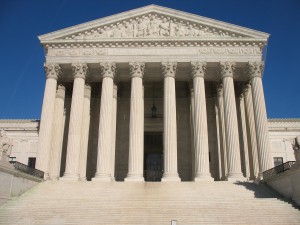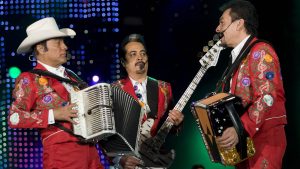El Chapo’s Trip North
 Joaquin “El Chapo” Guzman, the head of the Sinaloa Cartel, is now in a prison near Juarez, Mexico, which is adjacent to El Paso. He was transferred there from the maximum-security Altiplano facility near Mexico City.
Joaquin “El Chapo” Guzman, the head of the Sinaloa Cartel, is now in a prison near Juarez, Mexico, which is adjacent to El Paso. He was transferred there from the maximum-security Altiplano facility near Mexico City.
A 2015 report by the governmental National Human Rights Commission gave the Juarez prison an overall 6.63 rating on a scale of 0 to 10, the lowest for any of Mexico’s 21 federal prisons. By comparison, the maximum-security Altiplano facility near Mexico City where Guzman was confined before was 10th best with a rating of 7.32.
The prison sits on Sinaloa Cartel territory. But I don’t believe El Chapo will not be there long. He will be on a jet in the middle of the night within two weeks heading to a federal prison in U.S., probably the Super Max prison in Colorado.
Chapo will not be tried in U.S. but he will plead guilty to various federal crimes. As part of the plea agreement, he’ll received 20 to 40 years in prison with the possibility of having time shaved off his prison term if he cooperates with the DEA and other federal agencies.
Chapo will give information to his captors if it helps him. In Mexico, published reports indicated that he gave officials their information about rival drug cartels.
His newfound pals at the DEA will give him candy bars, a television to watch the telenovelas and extra time in the sun to keep Chapo’s memory fresh and his tongue wagging.
The DEA will want to know about the airline that El Chapo operated that reportedly has 599 airplanes and thousands of runways in Mexico. There will be questions, a lot of them: Where the planes were going, who were the unofficial air traffic controllers, what was being loaded on the airplanes and where are the drugs being stored? Who are the people on the payroll and who is doing the money laundering?
In the last decade, the Sinaloa Cartel has amassed and owns the largest fleet of airplanes in Mexico, with 599 aircraft seized between 2006 and 2015. The country’s flag carrier, Aeromexico, operates just 127 airplanes.
The feds are licking their chops. El Chapo is a walking Drug Cartel Encyclopedia.
This story about Chapo Airlines was reported by Laura Sanchez, published by El Universal and picked up by Fox News Latino.
Miranda Rights
“Has Miranda v. Arizona adversely affected criminal justice and public safety?”
According to an article in Law Enforcement, a police magazine, titled “Reduce Negative Impact on Miranda,” police officers are getting creative on when to administer the Miranda Rights on a suspect.
 Before law enforcement were required to give Miranda rights to suspects, law enforcement officer cleaned 63 percent of violent crime, and after the Supreme Court required the Miranda Rights, that number declined to 45 percent, according to the Law Enforcement. The article cites FBI reports.
Before law enforcement were required to give Miranda rights to suspects, law enforcement officer cleaned 63 percent of violent crime, and after the Supreme Court required the Miranda Rights, that number declined to 45 percent, according to the Law Enforcement. The article cites FBI reports.
“Given the numbers of reported crimes and this known reduction in clearance capability, we can reliably say that Miranda has resulted in the inability to clear a quarter-million homicides, 1 million rapes, 5 million robberies, and 9 million aggravated assaults,” according to Law Enforcement.
So, law enforcement armed with several Supreme Court rulings concerning Miranda Rights, are coming up with creative ways on how to administer a suspect’s Miranda rights to make arrests, including during voluntary station house interrogations and under cover questioning.
“If you can safely delay arresting a suspect or subjecting him to custodial restraints, you can delay triggering Miranda. If your suspect is not a flight or safety risk, consider inviting him or her to the station to talk, as officers did in two of the Supreme Court’s impact-reducing cases.
“In Oregon v. Mathiason, a burglary suspect agreed to come to the station voluntarily. He was told he was not under arrest, and was treated accordingly. Without warnings, he confessed to the crime,” according to the article, which was written by Devallis Rutledge, a former police officer and veteran prosecutor who currently serves as special counsel to the Los Angeles County district attorney.
He is also the author of 12 books, including “Investigative Constitutional Law.”
To read Rutledge’s excellent article click here: Miranda Right
SCOTUSblog

An excellent place to find out what cases are pending before the U.S. Supreme Court is through SCOTUSblog, which is an impartial, journalistic entity, according to the SCOTUS website.
“We exist to provide readers with objective information. We always clearly identify the limited commentary we publish,” it states.
SCOTUS is a treasure trove of Supreme Court information.
“GANG” Music
Prosecutors said a suspect had songs on his cell phone by Los Tigres del Norte, whose work includes ballads about drug trafficking. Prosecutors used the music as a piece of evidence indicating that it was proof of gang affiliation.
The Washington Supreme Court described an appeals court ruling “troublesome” that cellphone music was “untainted evidence” of gang membership.
The Washington Supreme Court wrote in its opinion, going on to mention the band’s commercial success.

“We find this conclusion troublesome,” the Supreme Court stated. Los Tigres Del Norte “has been one of the more prominent bands in Latin music for decades. Since forming in 1968, Los Tigres Del Norte have sold 32 million albums. They have won five Latin Grammy awards, and they have performed in front of U.S. troops serving abroad. There is no support in the record for the contention that enjoying their music is evidence of gang involvement. While this may not be the primary issue in this case, we felt that it was nonetheless important to take this opportunity to remind courts to exercise far more caution when drawing conclusions from a defendant’s musical preferences.”
Yakima County Prosecutor Joseph Brusic wasn’t happy with the Supreme Court decision, according to the Seattle Times newspaper.
“Three guys who are active gang members, who shot and damn near killed a guy, have been remanded for a new trial,” he said. “That’s never good when you’re a prosecutor.”
The music was a small piece of the other corroborating evidence of gang ties, which included their clothing and tattoos, he said.
But the court didn’t remand for a new trial because of the music in the cell phone, according to the Washington Supreme Court ruling.
It did so because after the suspects arrest in 2009, they told jail officials that they could not be placed in a cell with rival gang members, and the government used those statements along with the music and other evidence at trial to prove gang affiliation. The men appealed, seeking to throw out jail-statement evidence based on their Fifth Amendment right to not incriminate themselves.
The Washington State Supreme Court concluded in its ruling: “Under the Fifth Amendment, defendants cannot be compelled to testify against themselves. Statements made by the defendants can be admitted only if they were made voluntarily. In this case, the defendants made self-incriminating statements to avoid a credible risk of physical violence. By their very nature, such statements cannot be considered voluntary, and they should not have been admitted. These defendants are entitled to a new trial. Therefore, we reverse these convictions and gang aggravators.”

